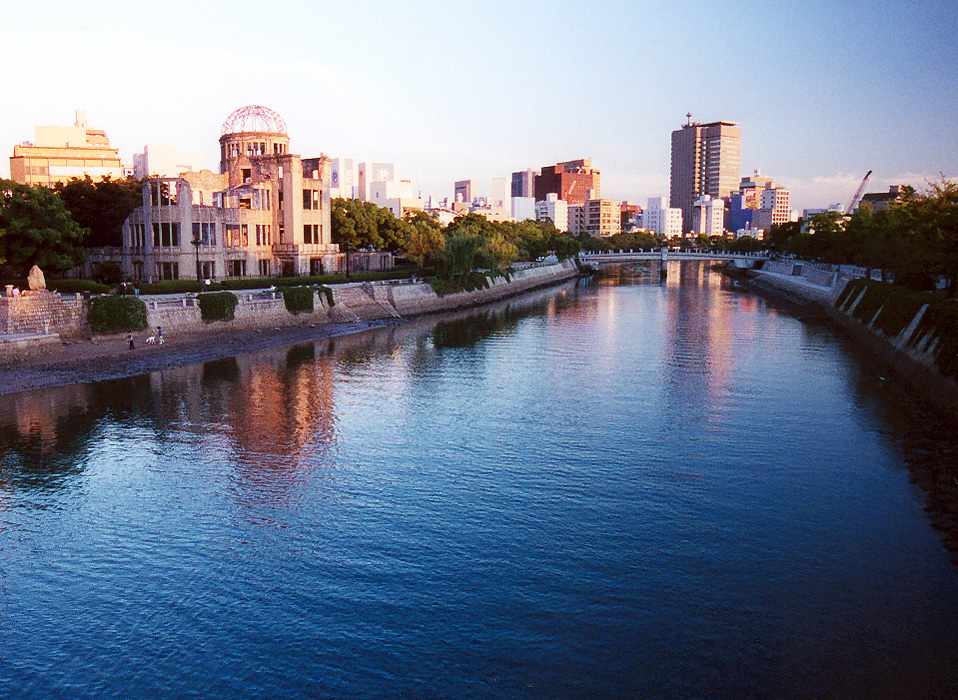
"Gembaku Domu" - The Atomic Bomb Dome
It will go down as one of the most inspiring survival stories ever to emerge from a horrific war. Tsutomu Yamaguchi was in his twenties when he found himself in Hiroshima on the morning of 6 August 1945, as a single B-29 US bomber droned overhead. The "Little Boy" bomb that it dropped from its payload would kill or injure 160,000 people by the day's end. Among them was the young engineer – who was in town on a business trip for Mitsubishi Heavy Industries – who stepped off a tram as the bomb exploded. Despite being 3km (just under two miles) from Ground Zero, the blast temporarily blinded him, destroyed his left eardrum and inflicted horrific burns over much of the top half of his body. The following morning, he braved another dose of radiation as he ventured into Hiroshima city centre, determined to catch a train home, away from the nightmare. But home for Mr Yamaguchi was Nagasaki, where two days later the "Fat Man" bomb was dropped, killing 70,000 people and creating a city where, in the words of its mayor, "not even the sound of insects could be heard". In a bitter twist of fate, Yamaguchi was again 3km from the centre of the second explosion. In fact, he was in the office explaining to his boss how he had almost been killed days before, when suddenly the same white light filled the room. "I thought the mushroom cloud had followed me from Hiroshima," Mr Yamaguchi said....

Metropolitan Museum of Art